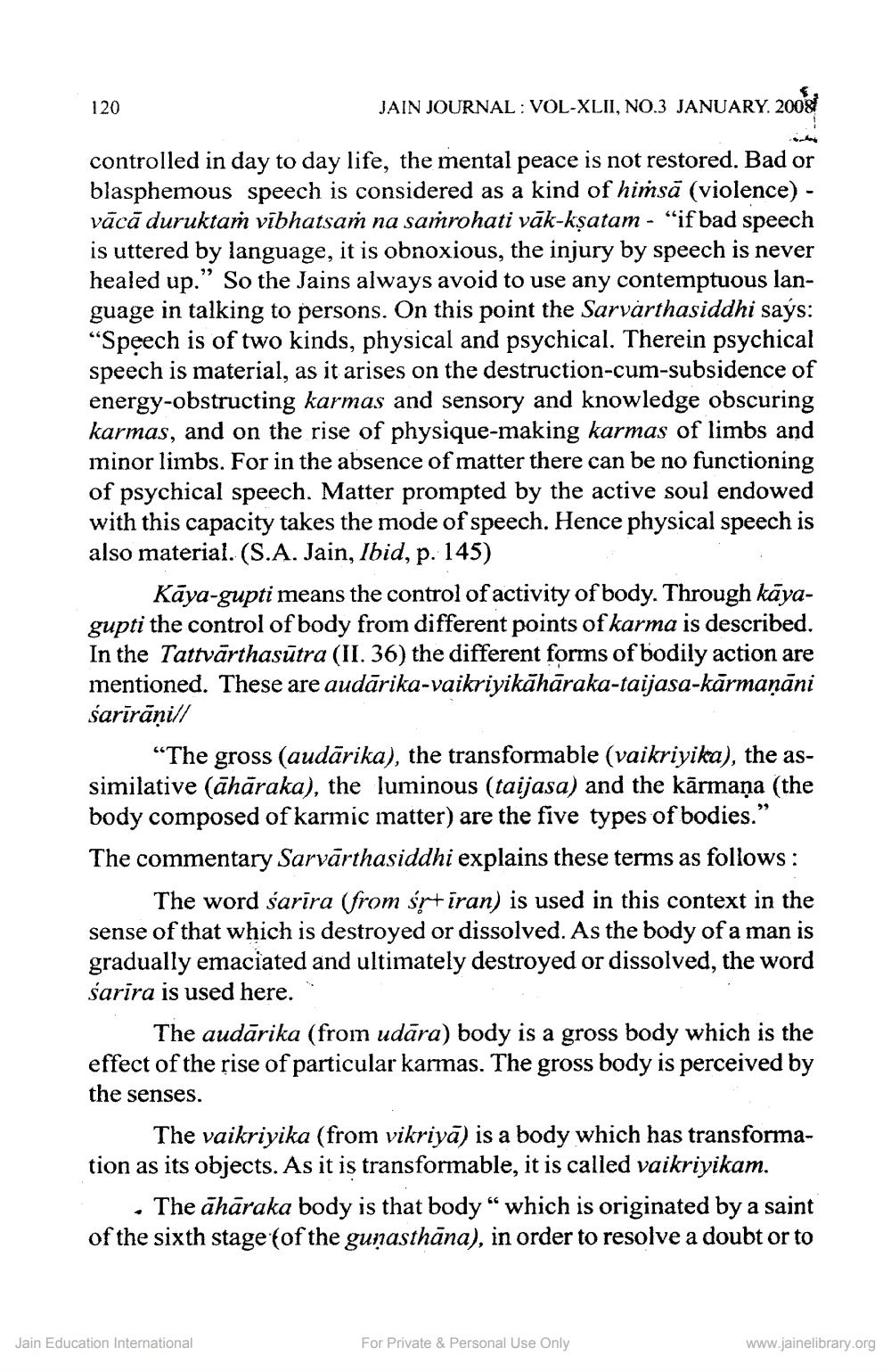________________
120
JAIN JOURNAL : VOL-XLII, NO.3 JANUARY 2008
controlled in day to day life, the mental peace is not restored. Bad or blasphemous speech is considered as a kind of hiṁsā (violence) - vācā duruktam vibhatsam na samrohati vāk-kşatam - “if bad speech is uttered by language, it is obnoxious, the injury by speech is never healed up." So the Jains always avoid to use any contemptuous language in talking to persons. On this point the Sarvarthasiddhi says: "Speech is of two kinds, physical and psychical. Therein psychical speech is material, as it arises on the destruction-cum-subsidence of energy-obstructing karmas and sensory and knowledge obscuring karmas, and on the rise of physique-making karmas of limbs and minor limbs. For in the absence of matter there can be no functioning of psychical speech. Matter prompted by the active soul endowed with this capacity takes the mode of speech. Hence physical speech is also material. (S.A. Jain, Ibid, p. 145)
Kāya-gupti means the control of activity of body. Through kāyagupti the control of body from different points of karma is described. In the Tattvārthasūtra (II. 36) the different forms of bodily action are mentioned. These are audārika-vaikriyikāhāraka-taijasa-kārmaņāni śarīrāņill
“The gross (audārika), the transformable (vaikriyika), the assimilative (āhāraka), the luminous (taijasa) and the kārmaņa (the body composed of karmic matter) are the five types of bodies." The commentary Sarvārthasiddhi explains these terms as follows:
The word sarīra (from srtiran) is used in this context in the sense of that which is destroyed or dissolved. As the body of a man is gradually emaciated and ultimately destroyed or dissolve
e word sarira is used here.
The audārika (from udāra) body is a gross body which is the effect of the rise of particular karmas. The gross body is perceived by the senses.
The vaikriyika (from vikriyā) is a body which has transformation as its objects. As it is transformable, it is called vaikriyikam.
. The ahāraka body is that body" which is originated by a saint of the sixth stage of the gunasthāna), in order to resolve a doubt or to
Jain Education International
For Private & Personal Use Only
www.jainelibrary.org




